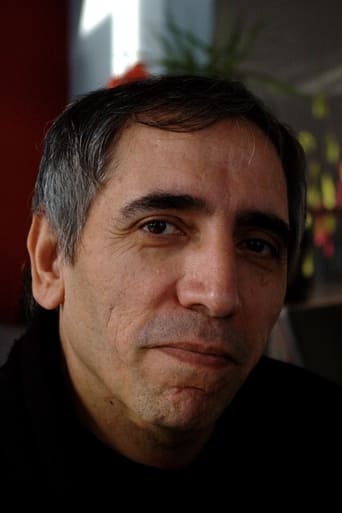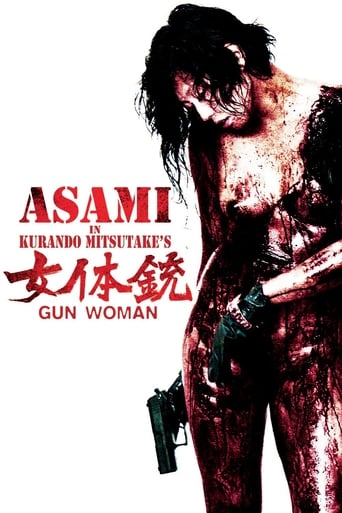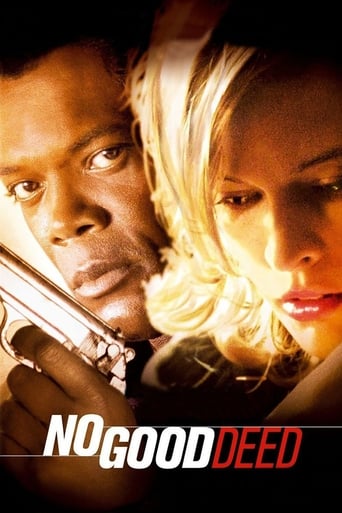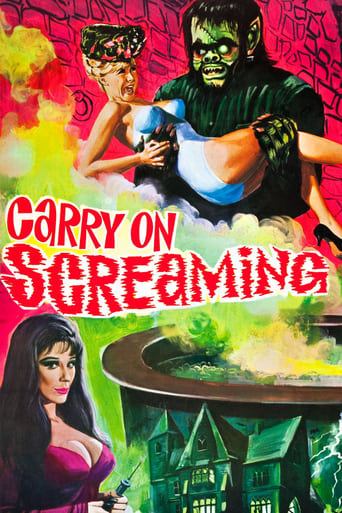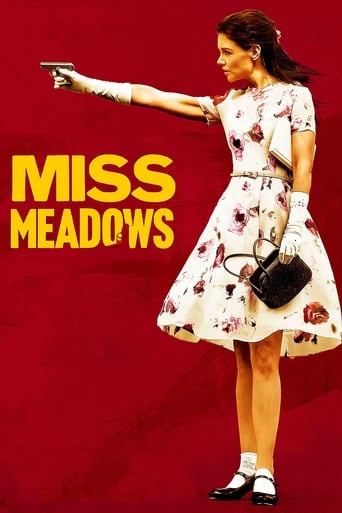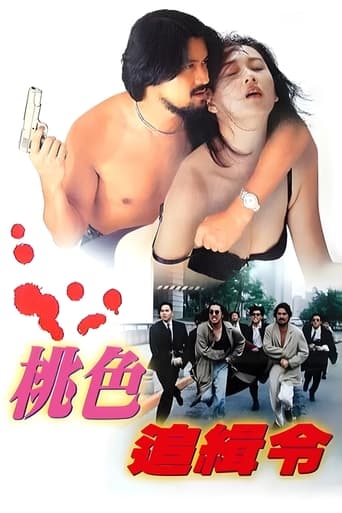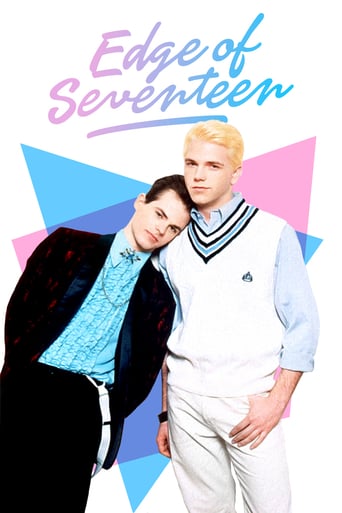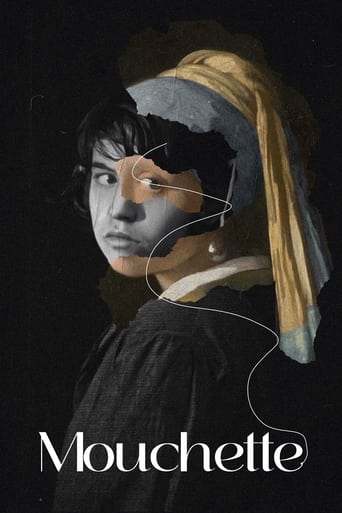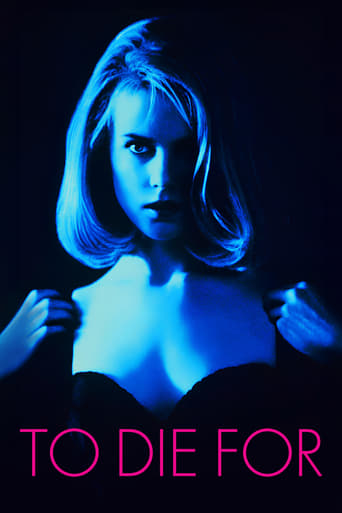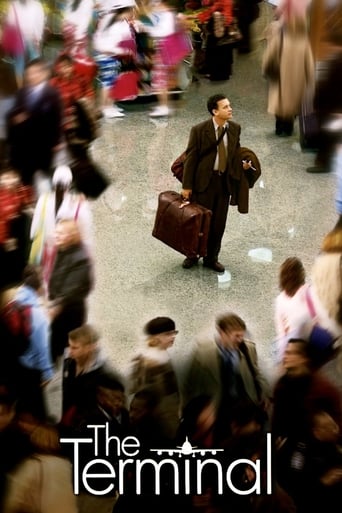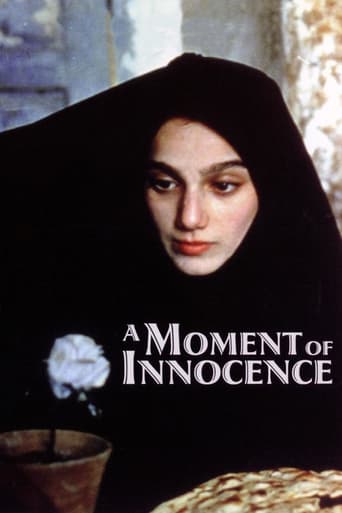
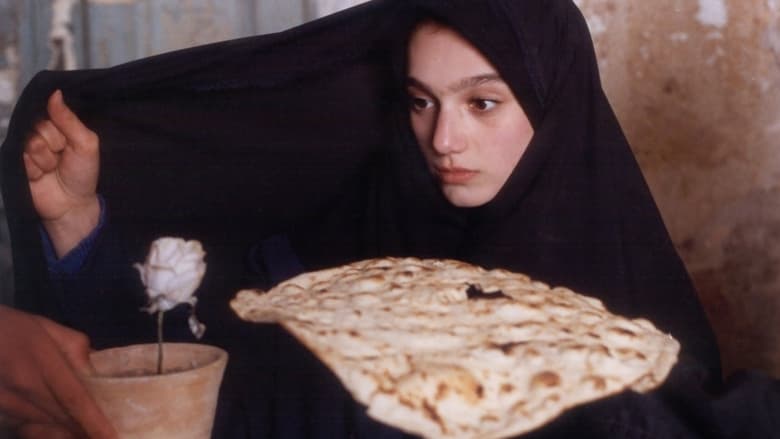
A Moment of Innocence (1996)
A semi-autobiographical account of Makhmalbaf's experience as a teenager when, as a 17-year-old, he stabbed a policeman at a protest rally. Two decades later, he tracks down the policeman he injured in an attempt to make amends.
Watch Trailer
Cast


Similar titles
Reviews
As if fellow Iranian director Kiarostami's exemplary intertwining of fact and fiction of a Makhmalbaf real-life story in "Close-Up" weren't enough, Makhmalbaf himself ups the ante of creative filmmaking a few years later: Focus is a moment in his young idealistic life where he stabbed a guard during the Iranian revolution, resulting in several years of jail time for him before he eventually emerged as one of the leading Iranian filmmakers. But it's not just an autobiographical detail he wants to shed light on, Makhmalbaf films a documentary on top of a pseudo-documentary (or is it the other way round?), it's a heavily symbolic re-interpretation of what happened, why and how, a look into an aspect of reality. In the process a transcendence of the actual situation ensues with an almost mythical truth buried in the film's final scene. Makhmalbaf accomplishes the feat by re-enacting said moment with no other than the actual stabbed guard (now out of money), who coaches a young actor to play himself - while the former guard is being filmed by the director doing so. Simultaneously to that Makhmalbaf casts actors meant to portray his own perspective of the events, not without revealing insights, and the whole effort culminates in the filming of that crucial stabbing scene: Welcome to a film in a film, a reality in a reality, a blending of fact and fiction in a most fruitful and enlightening way, social, historical and political commentary included. How much of what ended up on screen was actually planned, is for the viewer to decide, but if you're looking for creative minds Makhmalbaf's use of the medium will keep you enthralled throughout."Excuse me, what time is it?" we hear Makhmalbaf's accomplice ask the guard at the end of the film, the air pregnant with suspenseful anticipation of what is going to happen. So, what time is it? It's two decades after the original incident and an Iranian filmmaker has just delivered his masterpiece. And when the moment arrives the picture freezes, saving a moment in time for eternity that could only happen on film. But in a way, it's all real.
At the age of seventeen, Mohsen Makhmalbaf stabbed a police officer in an act of misguided political defiance. He spent the next few years in prison for this crime before beginning a successful career as a film director in the 1980s. According to this film, which may or may not be based on fact, the policeman he had stabbed showed up at a casting call some twenty years after their violent encounter with hopes of becoming an actor and impressing a girl that he had failed to woo due to his injury.Makhmalbaf sees the policeman's appearance as a unique chance to recreate his past and shed light on his own motivations so he decides to create a film about the incident with the policeman training an actor to understand how the event affected him while Makhmalbaf himself trains an actor to understand his motivations. The film is de-politicized, an unfortunate necessity in a country which still imprisons its artists at the slightest sign of anti-establishment leanings. Still, Makhmalbaf neatly sidesteps this by casting an idealist who wants to save the world as his teenage self.While the young Makhmalbaf was completely focused on changing society to be better for everyone, the young policeman was interested only in his own personal life, particularly in beginning a relationship with a girl he thought was flirting with him. There's a subtle point being made here about the banality of evil as the policeman, a representative of a group activists such as young Makhmalbaf found oppressive, never expresses any interest in the ideological aspect of his job. Thus the knife attack, which can hardly be seen as an effective means of protest even if the policeman had been a hardcore fascist, becomes an absurdly meaningless act. This is illustrated in the recreation of the attack in that the actor is hiding the knife under a piece of bread—he's using a symbol of nourishment only as a means of concealing a symbol of hatred. At the same time, the policeman in the recreation is holding a flower he has bought to express his attraction to the girl. In order to protect his gun, he has to drop the flower. Thus, the act of violence is not only hurting him physically, it's also causing him to lose his chance for happiness with the girl.A Moment of Innocence is a thought provoking film which uses Iranian cinema's usual focus on meta-narratives in an unusual way. It's also a well made film which strikes just the right tone for the subject matter. Mohsen Makmalbaf is a director I plan to become much more familiar with.
Despite its technical flaws here and there, due to the (in)capabilities under which Iran filmmakers have to work -as I'm told-, it would not be an exaggeration to name this film one of the best of all times.While reflecting or hinting at several 'layers' of personal and social conflicts and dilemmas roaming the daily lives of the youth and eld, native and universal, of the present and the past as well with a striking and effective language; at the same time it makes the viewer laugh one's guts out with the natural and fluent comedy. I daresay Chaplin style.(Spoiler ahead) Aside from the magnificent bread and flower moment at the end, one of the best scenes is when the girl rushes into a watch repairer's shop filled up with hundreds of watches and clocks, asks the time and is answered "I don't know, these are all broken, we repair them here!" (Paraphrased.)Don't miss it.
In the 1970's director Mohsen Makhmalbaf was a militant against the Shah; during a disturbance he tried to take a policeman's gun producing a struggle that resulted in him stabbing that officer a crime for which he then served time in prison. While away, he educated himself and was released from prison to be an influential voice within Iranian cinema. For this film he decided to use actors to recreate this event in his life with young actors playing himself and the policeman. However the director decides to split the actors each man gets the young version of himself, and their own camera to reconstruct events from their point of view. The experiment works producing further pain and anger.This is a hard film to describe, far less review. Basically this is a film about making a film of a real event; and if that wasn't twisted enough, it is really two separate films made from two points of view, although to describe the story as a film is a bit too much, really the focus is recreating the one fateful moment the two men came together. Now I'm not sure if this is all as real as it appears to be (particularly did the officer only find out that his "love" was a plant at the moment he did in the film?) but if it is staged then it is done very convincingly. The story works and manages to do both aspects well at the same time something that the film makes look easy but must have been very difficult to pull off. It is engaging for that reason but the fact that it is real people and a real story only makes it more interesting, not to mention how touching and downright tragic parts of it are. The final image is the most tragic both young boys want to avoid the violence and want specific things for that moment other than the stabbing, just as (we assume) both wanted in reality but, despite the final shot of the film we know that the reality was the violent outcome.The direction is superb, weaving together this tale with different actors and blending realities with such confidence. The "performances" are good, although please remember that I don't know if these were staged or as we saw them. If they were staged then high praise indeed should go to Tayebi, because he is convincing in his emotion, his passion and, ultimately, his heartbreak. The others do well around him but for me, he was the loser of the film and I ended feeling a great deal for him partly due to his presence on the screen.I have done a bad job of reviewing this film and for that I am sorry. I have failed to describe how engaging it was, how the blending of the "filming of the re-enactment" and the "film of the filming of the re-enactment" merge but still are obvious and separate. I have failed to really do justice to the characters and the emotions involved in the story. However, my words should not detract from this very strong film that demands attention but rewards it in spades you should try to find it.


